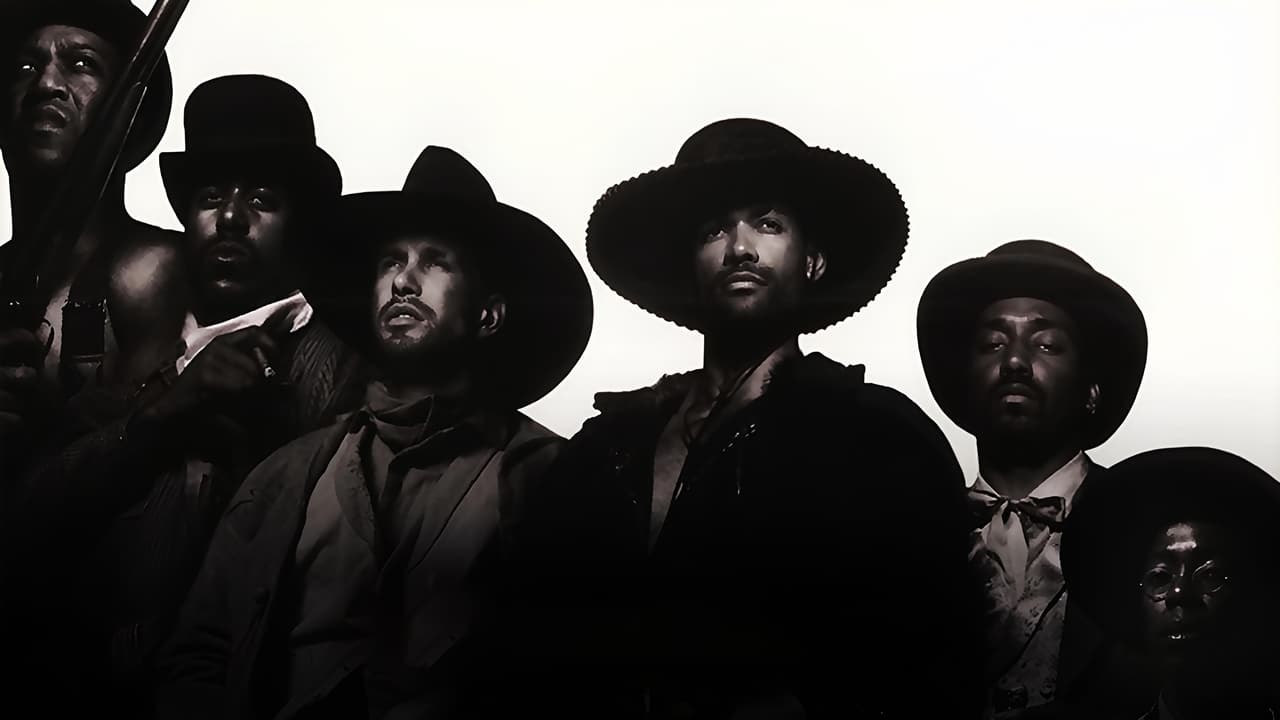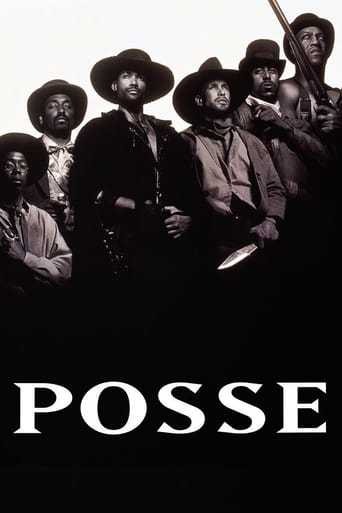

Highly Overrated But Still Good
... View MoreThe first must-see film of the year.
... View MoreThe biggest problem with this movie is it’s a little better than you think it might be, which somehow makes it worse. As in, it takes itself a bit too seriously, which makes most of the movie feel kind of dull.
... View MoreIt is neither dumb nor smart enough to be fun, and spends way too much time with its boring human characters.
... View MoreWow, what a racist, profane piece of celluloid garbage, and what an insult to the great genre of Westerns.Exploitive? Sex scenes abound, profanity abounds, violence and gore abounds.....everything that gives modern movies such a good name, especially among those who prefer classic-era movies. This is the kind of sleaze that gives the old folks ammunition against today's films. Somehow I just can't picture nude male bathing scenes in Randolph Scott or Gene Autrey films. Nor can I picture hearing "motherf---er!" exclaimed here and there. I sincerely doubt that word was even around over 100 years ago. Yet, the f-word is so prevalent here you'd think you were watching a story centered in today's urban areas, not the old west of the 1800s.Prejudice? Well, what if all the white characters were good guys and every black person was the nasty, brutal villain? Do you think someone might complain about a racist movie? Home come we don't hear an outcry when the reverse - as demonstrated in this film - is shown in hundreds of theaters across the country?Mario Van Peeples wrote, directed and starred in this bomb. Remember that name. Apparently, he is the "Ed Wood" of today's filmmakers. Even Spike Lee wouldn't be this racist. You can't get much worse than this movie.
... View Morespoiler--In 1993, African-American director/actor Mario Van Peebles followed up the tremendously popular urban-action film New Jack City with "Posse". The film was co-written and directed by Van Peebles, who also stars as the main character, Jessie Lee.Plot: The film begins at the turn of the 20th century, when the United States was embroiled in the Spanish-American war. Apparently a time when the U.S. justice system could send convicts into military service, Jessie Lee finds himself an unwilling enlisted man, serving with an all-black cavalry troop in Cuba. Some of his compatriots include Little J (Stephen Baldwin), fast-talking Weezie (Charles Lane) and the towering-but-simple Obobo (Tiny Lister). They find a hidden chest of gold on a reconnaissance run and decide to keep it. However, the ambitious, bigoted Colonel Graham (Zane) finds out about the gold, and is apparently willing to kill Jessie Lee and company for it. A shootout between the Graham's forces and Jessie Lee's leaves the colonel blind in one eye, and his forces retreat. Jessie Lee's ragtag crew manage to smuggle themselves (and the gold) back to New Orleans, but it turns out that Graham isn't far behind. Jessie Lee and his allies are forced to go on the run, heading west, to a town called Freemanville. Apparently, Freemanville was founded by blacks in the years following the Civil War. Jessie Lee's father, "King David", was the charismatic preacher who co-founded the town. However, as is revealed in intermittent flashbacks, King David was soon brutally murdered by a white mob, in a parallel of the Ku Klux Klan terror campaigns that began around the same time. Jessie Lee and company eventually find their way to Freemanville, only to find that the townsfolk aren't exactly glad to see himespecially when Sheriff Bates (Richard Jordan) of a nearby white township makes it clear that he wants Jessie Lee and his partnersdead or alive. Carver (Blair Underwood) is the sheriff and de facto mayor of Freemanvilleand his own agenda may not square with having Jessie Lee around.Analysis The action sequences are all very credible, and Mario Van Peebles turns in a good performance as the brooding hero. In the aftermath of the success of New Jack City, it was almost expected Van Peebles would helm a sequel, or at least a similar urban-action follow-up. Instead, Van Peebles looked 100 years into the past, creating a mostly-black Western (effectively 'updating' the black-themed Westerns of the 1970's), and continuing the legacy of largely-forgotten black-themed cowboy films from the early 20th century. Unlike New Jack City, the film was independently financed, and originally released through Gramercy/Polygram Entertainment. Allegedly, execs at the major studios balked when Van Peebles pitched 'Posse' to them. Some of the more "curious" casting at the time involved rappers Big Daddy Kane and Tone Loc as Father Time and Angel, respectively. In certain interviews, Mario Van Peebles has said that he often likes to cast against type; in the years since, the trend of casting rap singers in non-musical films would become almost commonplace. Keen viewers will notice several cameos by various entertainment personalities: Black-action film veterans like Isaac Hayes ("Truck Turner"), Pam Grier ("Foxy Brown") and Larry Cook ("The Spook who Sat by the Door") show up, as does stand-up legend Nipsey Russell, not to mention TV producer Stephen J. Cannell (who hired the junior Van Peebles to star in "Sonny Spoon" years earlier). The film is bookended with Woody Strode ("Spartacus") in a key role.
... View MoreThank you Mario Van Peebles for informing us of not only the existence of black cowboys, but providing a compelling story that was easy to follow.The plot, backdrop, music and talent were all top notch. It was great that you used so many African-American artists to tell the tale of the black cowboy. It was also good to see Billy Zane in this movie. Does he ever play a good guy?I would highly recommend this film to anyone who wants to broaden their way of thinking. This is an excellent movie and I feel privileged to have seen it. Hopefully, you'll feel the same.
... View MoreA good old-fashioned flight-and-revenge western, given a twist and a touch of gravitas by injecting a little black social history into its plot. Lead by Mario Van Peebles, who does OK, the gang of misfits on the run from Billy Zane's (seemingly unstoppable) army bigwig all acquit themselves well, their adventures plausible yet fun and exciting. There're some nice moody flashback scenes setting up the hero's character and backstory, a good shoot-out ending as our heroes defend the town from greedy white landgrabbers, and even Stephen Baldwin isn't bad in this enjoyable, quite powerful western.
... View More